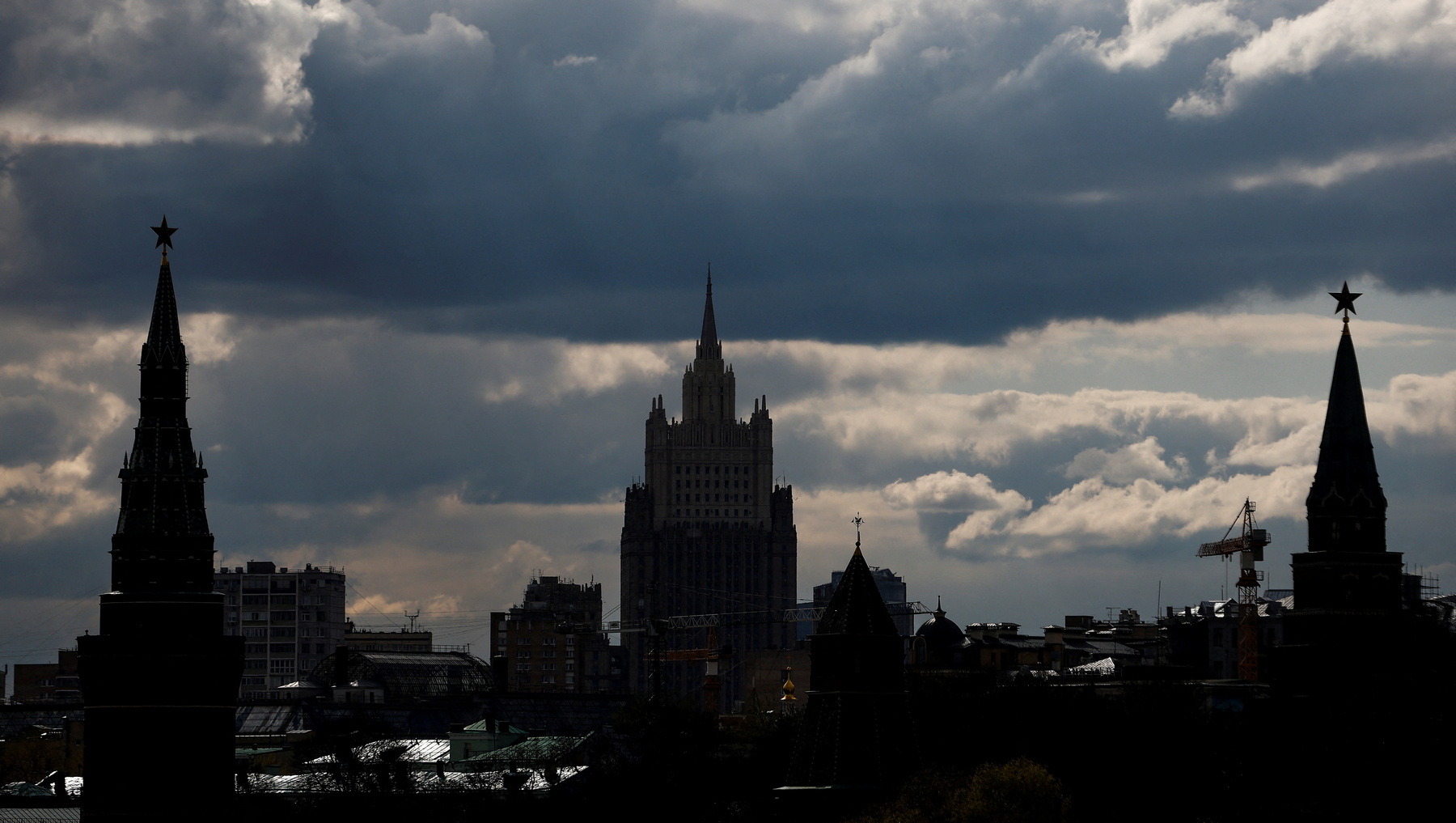As Russia is amassing troops on the Ukrainian border, the topic of sanctions is again high on the West’s agenda. Since 2014, the US and EU have been repeatedly introducing restrictive measures against Moscow in an attempt to raise costs for the Kremlin to conduct its foreign policy, but the sanctions mainly constrained – not coerced – Russia’s behaviour. For the lack of a better alternative, sanctions are once again prominently featured in the West’s discussion on how to deter Russia.
US President Joe Biden warned that he will put together “the most comprehensive and meaningful set of initiatives to make it very, very difficult” for the Kremlin to invade Ukraine. The core pillar of this set of initiatives is “high-impact economic measures”. US Secretary of State Anthony Blinken hinted at their potential nature – those measures that “we’ve refrained from using in the past”.
In 2014, the West imposed low-intensity sanctions on Russia, holding back the most hard-hitting options. The EU’s more dovish position softened the West’s overall response. This time could be different. Mounting fears about Russia’s aggression bring more intense sanctions back into the spotlight: financial sanctions on Russian banks, energy, mining and shipping companies; visa bans and asset freezes on the Kremlin’s inner circle; sanctions on the country’s sovereign debt and the cut-off from SWIFT as the last resort. Halting the Nord Stream 2 pipeline could be another nuclear option. Each measure comes with its own caveats. Yet most importantly their impact will depend on the West’s credibility to follow through and its willingness to bear sanctions costs.
Further sectoral sanctions
The current sanctions on the Russian financial and energy sector are very tailored. They only restrict certain transactions for specific Russian banks and energy providers. Placing Russian banks under full blocking sanctions or expanding financial restrictions on Russia’s largest state-owned such as Sberbank, VEB.RF, VTB, Gazprombank and the Russian Direct Investment Fund would have a significant impact. The would have a spillover effect on the whole Russian economy. Despite Russia’s pivot to non-Western countries, tapping their capital markets has been at best a partial process. Asian or Arabic countries do not provide the most favourable interest rates. Yet for western governments, Gazprom and Rosneft’s “too big to sanction” status make full blocking measures hard to stomach. In this case, any further restrictions would need a more surgical approach. Banning new investments or sanctioning the energy majors’ subsidiaries could be a way to avoid collateral damage. Russia’s mining, shipping and insurance sectors have not been touched by the previous sanctions. Or, state-owned or state-controlled companies such as Alrosa or Sovcomflot could be a new target. Extending export controls on advanced technology to the Arctic onshore would tighten the screw (currently only offshore oil projects are targeted). Given Europe’s energy crunch and the US’ high dependence on Russian oil, however, limiting Russia’s current export capabilities in the energy sector seems unviable.
Targeting the Kremlin’s inner circle
Expanding individual sanctions on senior officials on the Russian government and the Kremlin’s inner circle has been floated as another option of deterrence. Such sanctions will not change Kremlin policy per se. Still, the West can raise the costs for oligarchs and kleptocrats and hit their weak spot – enjoying their ill-gotten gains abroad by leading a luxurious lifestyle and travelling to the West for high-quality education and healthcare systems. The escalation on the Ukrainian border can make of the Navalny list with 35 names of high-ranked Russian officials and oligarchs relevant again. The list named Roman Abramovich and Alisher Usmanov, Russian billionaires with wide business portfolio in Russia and globally, Andrey Kostin, president and chairman of VTB bank and Denis Bortnikov, the son of the director of the Russian Federal Security Service as the top candidates for sanctions. Given that corruption and human rights abuse is high on the Biden administration’s agenda, sanctioning Russian kleptocrats could become another reason on top of Russia’s aggression.
Sanctions on sovereign debt
Further limiting Russia’s access to Western capital markets can include sanctions on the country’s sovereign debt. In April 2021, the Biden administration extended Russian sovereign debt ban to non-rouble-denominated bonds on primary market, but stopped short of targeting the secondary market. The reason was a relatively high share of non-residents holdings of Russian bonds, particularly from American investors. Prior to the April sanctions, US investors held around 7% of Russian bonds on the secondary market. Since then, the share of non-residents dropped due to the persistent risk of sanctions. With the decline of American investors on the Russian bond market, the effectiveness of this sanctions option will also decline. Russian state-owned banks such as Sberbank and VTB already dominate the primary market and sanctions on the secondary market will only expand their remit. The main impact of such measure will come from the higher premium on the primary market, leading to increased interest payments. However, there are two ways in which sovereign debt sanctions could still have bite: extending trading restrictions to Russian state-owned banks and companies and imposing sanctions on already circulating Russian rouble- and non-rouble denominated bonds on the secondary market. Currently, non-residents hold Russian bonds worth $42 billion.
Cut-off from SWIFT
Finally, cutting Russian banks from SWIFT would be the last resort. Russia is heavily reliant on SWIFT due to its multibillion dollar exports of hydrocarbons denominated in the greenback. The cut-off would terminate all international transactions, trigger currency volatility, and cause massive capital outflows. Since 2014, Russia has developed alternatives to American Visa and Mastercard as well as to Belgium-based SWIFT – the National Payment Card System ‘Mir’ and System for Transfer of Financial Messages (SPFS). In the case of a doomsday scenario, both Mir and SPFS could supplant Western analogues for domestic operations. Performing international transfers, however, would be an arduous task. Still, the likelihood of this nuclear option being implemented has remained low. Technically, the US would need coordination with the EU to follow through on this threat. Legally speaking, as a European-based organisation, SWIFT would be subject to any decision coming from Brussels, not Washington. In the past, the European Parliament called for considering the SWIFT cut-off, but it did not gain any traction in the European Commission. Russia is banking that its close integration into the global financial system will work as a shield against such an option. Moscow also argues that it would be financially unprofitable for SWIFT itself – Russia has the second-largest number of participants in the system after the US each of whom makes payments for domestic and international traffic.
Given the amount of collateral damage that could be unleashed by cutting off SWIFT, the US and European officials are discussing the second most drastic option – to ban Russia’s ability to convert rubles into dollars, euros and British pounds. The impact of such a measure is still to be gauged because it will depend on its scope – whether the ban on conversion will be narrowly tailored on the Russian government or will be a blanket prohibition for the public and whether the conversion of dollars, euros and British pounds into roubles will also be affected. Due to the centrality of the US dollar, prohibiting dollar conversions would be an easy feat. For the EU and UK this is an unchartered territory but both Brussels and London can apply such measures if there is an EU or UK nexus – involvement of European or British clearing centers in transactions.
Halting Nord Stream 2
Another way of significantly ramping up the price for the Kremlin’s escalation in Ukraine is to halt the commissioning of the Nord Stream 2 pipeline. US extraterritorial sanctions on the project are theoretically conceivable, but the Biden administration strongly opposes doing so without transatlantic coordination with Berlin. This puts the ball in Germany’s court: the enactment of this measure would require the political resolve from the incoming German government. On the day of the Biden-Putin call, US officials confirmed that they have an understanding with Germany about shutting down the pipeline. The previous German government successfully managed to compartmentalize its sanctions policy and energy projects with Russia despite a series of wrongdoings by Moscow. While the new SPD-led government is likely to have continuity, the Greens and FDP have a more hawkish stance on Russia and its energy project. The certification of the pipeline is currently temporarily suspended due to a technical issue, but in the case of a Russian invasion the suspension could become a powerful leverage for the new coalition.
The renewed exchange of Moscow’s saber-rattling and Washington’s sanctions threats will have long-term consequences. The West’s response to Russia’s ongoing escalation will predetermine Moscow’s future moves. If the sanctions package is not significant enough and lacks credibility, the Kremlin’s demands and “red lines” will be more difficult to push back against in the future. While those options of higher intensity are capable of deterring Russia, they are unlikely to coerce Moscow to change its behavior. Sanctions alone will not be able to achieve it and the West should be ready to deploy them in conjunction with other tools of economic statecraft.










